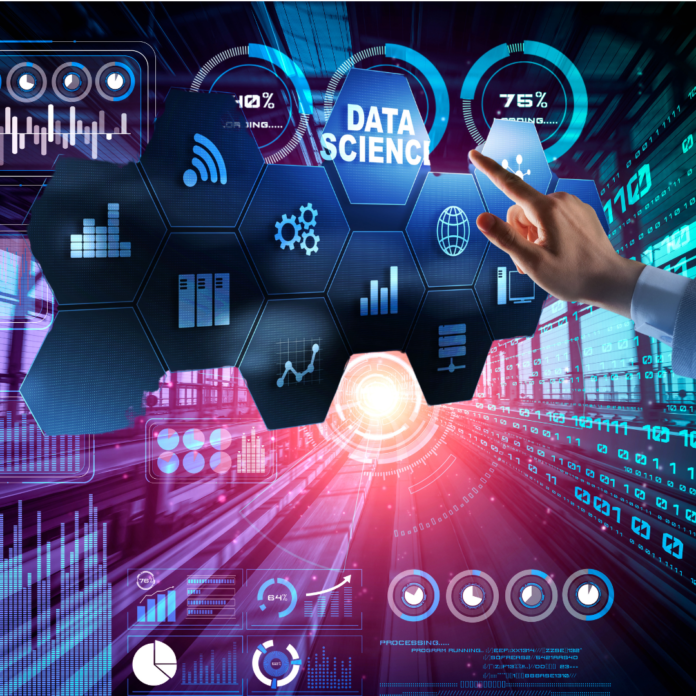In today’s data-driven world, two fields are at the forefront of technological advancement: data analytics and data science. Both fields of study are data-driven. But they have different objectives and require special skills. Understanding the differences between these careers can help a person choose the right career path. In this article, we will explore the differences between Data Analytics and Data Science in terms of curriculum, job roles, expected salary, and more.
Understanding of data analysis and data science
Data Analysis Focuses primarily on interpreting raw data to provide actionable insights. It involves using statistical techniques. data processing and visualization tools to analyze and interpret data. Often the goal is to solve a specific business problem or optimize a process using historical data.
Data Science Even though it includes data analysis. but also exploring predictive modeling. machine learning and algorithm design Data scientists don’t just interpret data. But it also creates models and algorithms that enable predictive analysis. automatic system and deeper insights Work with structured and unstructured data This often uses advanced math and programming skills.
Key Differences Between Data Analytics and Data Science
| Feature | Data Analytics | Data Science |
|---|---|---|
| Focus | Interpretation of existing data to solve business problems | Prediction, machine learning, and data-driven decision-making |
| Techniques Used | Statistical analysis, visualization, descriptive analysis | Machine learning, AI, predictive modeling, algorithm development |
| Data Type | Primarily structured data | Structured and unstructured data |
| End Goal | Optimize existing processes or solve business questions | Create predictive models and tools for advanced decision-making |
| Tools | Excel, SQL, Power BI, Tableau | Python, R, TensorFlow, Keras, Hadoop, Spark |
Data Analysis and Data Science Courses
Whether you are a beginner or someone who wants to improve their skills. There are many courses available to help you transition into a specific career. Below is a summary of the most common courses in each field:
Instructions for data analysis:
- Google Data Analysis Professional Certification : A beginner’s course designed to introduce students to the basics of data analysis. Includes data cleaning, visualization, and SQL.
- Excel to MySQL Course: Analytical Techniques for Business: This course aims to develop practical skills in managing data using Excel and MySQL.
- Tableau Specialization (Coursera) : A comprehensive course based on Tableau, an essential tool for data visualization in data analysis.
Data Science Course:
- IBM Data Science Professional Certification: In-depth examination of machine learning, Python, data visualization. and predictive modeling
- Data Science Specialization by Johns Hopkins University (Coursera) : 10 course program covering a wide range of topics. From statistical analysis to machine learning With practical projects
- Python for Data Science and Machine Learning Bootcamp (Udemy): Focused on Python and its applications in data science. It covers topics such as NumPy, Pandas, and Machine Learning libraries in TensorFlow, it said.
Roles and Responsibilities
Data analysis role:
- Data Analyst: Their primary role is to analyze and interpret data, identify trends, and provide actionable insights to improve business operations. They typically use SQL, Excel, and databases such as Power BI or Tableau.
- Business Intelligence Analyst: BI Analysts create dashboards and reports that help organizations.
Data Science Job Positions:
- Data Scientist: Data scientists build predictive models using machine learning algorithms. Work with both structured and unstructured big data using tools like Python, R, and Hadoop.
- Machine Learning Engineer: This position focuses on applying machine learning models to real-world applications. Requires in-depth knowledge of algorithms software development and database design
- Data Engineer: Data architects design and build the infrastructure needed to create and maintain data. They often use big data technologies such as Apache Hadoop and Spark.
Expected prizes – kamai kya he
The pay potential in both fields is attractive. Although information technology positions tend to have higher salaries, Because it requires knowledge, rigor and depth.
Data analysis fee:
- Data Analyst: In India, the annual salary of a data analyst is around ₹6-10 lakhs, depending on experience. In the United States, it ranges from $60,000 to $90,000.
- Business Intelligence Analyst: BI Analysts earn around ₹7-12 lakhs per year in India. and in the United States Salary ranges from $65,000 to $95,000.
Data Science Award:
- Data Scientist: In India, Data Scientists earn between ₹10-20 Lakhs per year depending on their experience and skills. in the united states The average is $90,000 to $150,000.
- Machine Learning Engineer: Machine Learning Engineers are among the highest paid employees in the tech industry. In India, they are expected to earn between ₹12-25 lakhs per year. While in the United States the salary ranges from $100,000 to $160,000.
Future and career growth
Both data analytics and data science are growing fields in high demand across industries. including finance Healthcare, e-commerce and technology
Data Analysis: While companies Commit to becoming more data-driven. The demand for skilled data analysts will continue to increase. It’s easier to find entry-level roles. But growth may require a shift to specialized roles, such as business intelligence or operations analytics.
- Credentials: Credentials are booming. It is likely to increase 11% through 2031, according to the U.S. Bureau of Labor Statistics. Data scientists with expertise in machine learning will play a more specialized role. and can move to management positions such as Chief Information Officer or Chief AI Scientist
Summary
Both Data Analytics and Data Science offer promising career paths. Each place has its own unique opportunities. Data Analytics is ideal for those interested in interpreting and visualizing data to provide practical insights, while Data Science is ideal for those wanting to dive deeper into predictive modeling. Machine Learning and AI
Å Choose the right career depending on your interests and abilities. Whether you like solving business problems through data or you like complex algorithms and modeling. Both fields are filled with opportunities for growth and development.








